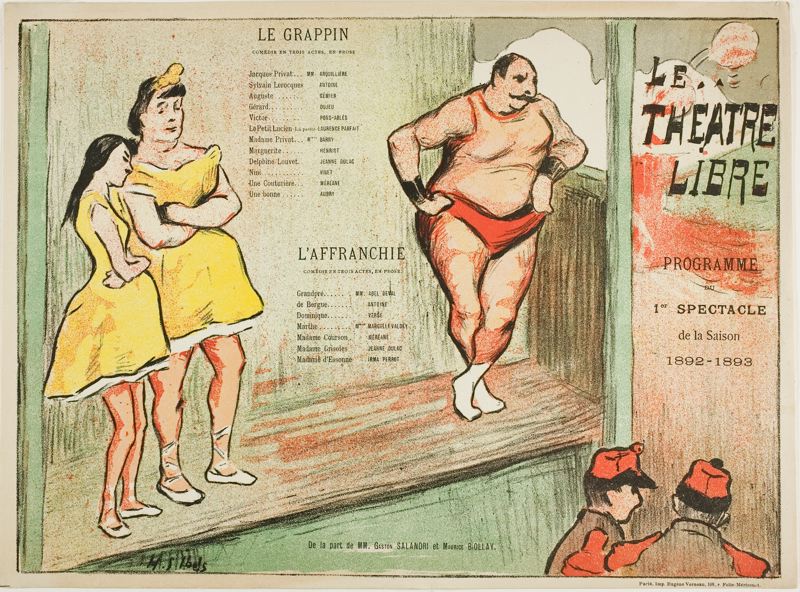|
Théâtre Libre
The Théâtre Libre (French for "Free Theatre") was a theatre company that operated from 1887 to 1896 in Paris, France. Origins and History Théâtre Libre was founded on 30 March 1887 by André Antoine. The primary goal of the theatre was to present new plays that were untried and unproduced by the commercial houses. Antoine was driven to open his own theatre company to create a dramatization of an Émile Zola novel, '' Thérèse Raquin'' after the theater group for which he previously worked had refused. In order to ensure that the Théâtre Libre was exempt from censorship and could produce plays that other theaters would not, the theatre was supported solely by subscribers. This allowed the Théâtre Libre to collect no money at the door meaning it was not legally considered a theatre. Being a "free" theatre, in the case of Théâtre Libre, meant being a theatre that presented naturalism and was dedicated to producing plays in any and all genres that had not been produ ... [...More Info...] [...Related Items...] OR: [Wikipedia] [Google] [Baidu] |
Theatre Company Theatre or theater is a collaborative form of performing art that uses live performers, usually actors or actresses, to present the experience of a real or imagined event before a live audience in a specific place, often a stage. The performers may communicate this experience to the audience t |

